1. The "Obento": nursery student's lunchbox
1.1. Mothers prepare these lunchboxes perfectly
1.1.1. the way the lunch is prepared and the obento is presented reflects that the mother is a good woman and mother
1.2. Children eat everything their mother prepared for them to show they shows they are obedient and a good child
2. Cultural Ritual and State Ideology
2.1. State Apparatus
2.1.1. power that the state wields and manages primarily through the threat of force
2.2. Ideological State Apparatus
2.2.1. Institutions which have some overt function other than a political and/or administrative one: mass media, education, healthy and welfare, etc.
3. Japanese Food as Cultural Myth
3.1. A Japanese mother prepares a five or six course miniaturesized meal whose pieces and parts are artistically arranged, perfectly cut, and neatly arrange.
3.2. Key Element is Appearance
3.2.1. Taste and Nutrition are also considered, but not to the degree of how food looks
3.2.1.1. The way food has been re-constructed and rearranged from nature to appear is stressed
3.2.1.2. food is fresh and is left either raw or minimally cooked
3.2.2. Food is made to make contrasts to color, texture and shape
3.2.2.1. Food is rendered by constantly hinting at and appropriating nature or to accentuating and perfecting the preparation process
4. School, State, and Subjectivity
4.1. obentos uses food to code a cultural order and to socialize children and mothers into their gendered roles and subjectives they are expected to assume
4.2. School teaches children how and what to think; it also shapes them for the roles and positions they will assume as adult members of the society.
4.3. Through the Ministry of Education, education is one of the most powerful and influential ministries in the government
4.3.1. Education is centralized and managed by a state bureaucracy that regulates almost every aspect of the educational process
4.4. Principle of "gakureki shakkai": careers of adults are determined by the schools they attend as youths
5. Nursery School and Ideological appropriation of the Obento
5.1. Nursery school is usually private and not compelled by the state
5.2. Ministry of Education has a significant influence over nursery schools
5.2.1. authority over how the yochien is run is in the hand of the ministry of education
5.2.2. Most parents and teachers see the yochien as the first step to the system of compulsory education
5.2.3. Rule and patters of "group living" is introduced to the child in nursery school
5.3. The obento is intended to ease a childs discomfiture and to allow a childs mothers to manufacture something of herself and the home to accompany the child as they move into the outside world
6. Mothering as Gendered Ideological State Apparatus
6.1. Mothers task is to get the child to consume what she made
6.2. visual appearance and appeal was stressed by the mothers
6.2.1. over-elaborating a childs lunch box makes a statement of who she is
6.2.2. A mother makes food as an aesthetic and pleasing social structure
